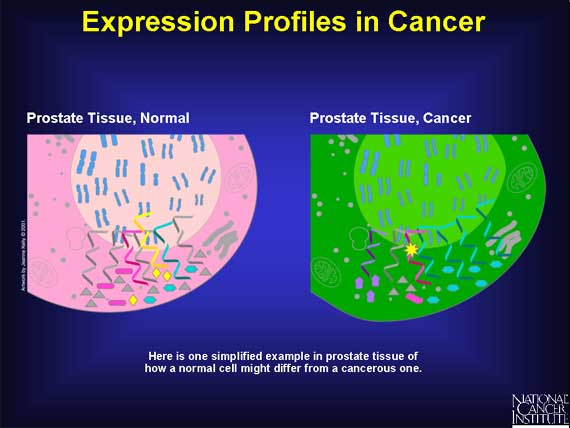|
It is possible to measure differences between a normal and a cancer tissue of the same type--for example, normal and cancerous prostate. Samples of normal prostate tissue will have identical expression profiles. But when a normal prostate tissue is transformed into cancerous prostate tissue, the expression profile changes.
Any changes in gene expression ultimately cause alterations in protein production. New expression profiles in a cancer cell can dramatically alter the network of proteins that interact. A critical protein may no longer be available, another may be overproduced, yet another may be flawed. And when new genes become activated, entirely new proteins may be introduced.
Many different combinations of gene changes and protein interactions are seen in cancerous tissue.

< Previous | Index | Next Slide > |